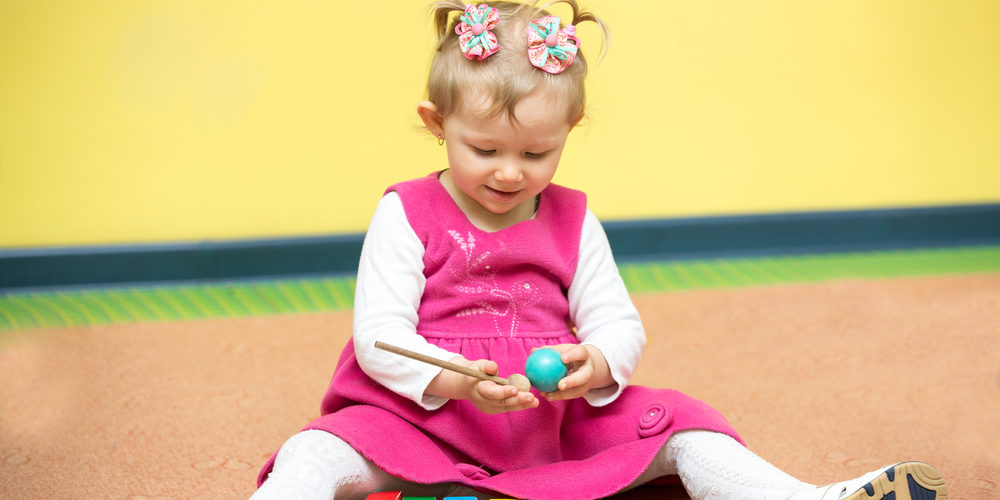Between 18 months and 21 months, babies develop at an astoundingly fast pace. You might not realize it immediately, but this period is when your child truly starts to explore the world. They learn what it means to be independent, and they want to do things by themselves. Your baby is going to want to touch everything in sight—and that’s not a bad thing.
You can support your 18- to 21-month old with Montessori activities that are designed specifically for this period of development. Don’t forget to choose a Philadelphia Montessori school or daycare, as this will further aid your child’s growth.
Skills Developed During 18 Months to 21 Months
Understanding exactly what your one-year-old is trying to achieve will help you come up with activities. Here are some skills that are developed between 18 months and 21 months of age:
- Hand-eye coordination: During this period, children refine their hand movements. They are able to pick up items with more ease and handle them.
- Gross motor movements: Once a baby has started walking, they are immediately going to seek out greater challenges. Your 18-to-21-month old may want to start climbing, running, and carrying heavy objects around the house.
- Order: Children start to seek out repetition and routine. Having their toys ordered and everything in its place. This instills a sense of security and familiarity.
- Language: Around 18 months, a child’s vocabulary grows dramatically. Now, they are putting words together to make requests and communicate better.
Montessori Activities For 18 to 21 Months
There are a number of activities that you can introduce during this pivotal stage. You may even be inspired by the options we have listed below and come up with your own. These activities include practical life skills and building a vocabulary and repertoire of movements.
Practical Life Activities
You can introduce age appropriate life skills once your child reaches 18 months old. Such activities include hand washing, self-feeding, dressing, teeth brushing, cleaning dishes, and caring for plants and animals. You can also incorporate other elements of a Montessori education (Grace and Courtesy, for example) by teaching your child gentle manners, counting, and music or art appreciation during these moments.
Here are some examples:
- Unloading and placing dishes in their appropriate place. Set up a place in the kitchen where your child will find all their cups, plates, and eating utensils. You can have your child help with unloading the dish rack or dishwasher and place their dishes into the cabinet. This will also teach them valuable organizational skills.
- Washing fruits and vegetables for snack time. Then, let your child slice their own fruit (with a kid-friendly knife).
- Washing dishes and cleaning up spills. Working on these kinds of tasks teaches your child responsibility for cleaning up their own mess. Keep a dustpan, broom, and some rags in an accessible place so your child will be able to wipe up spills easily.
- Pouring water and juice into a cup for themselves and others. As your child gets better at pouring water from a pitcher into a glass, you can introduce pouring milk into a bowl, pouring dog food, and pouring cereal.
- Advanced meal preparation. Maybe your one-year-old has already mastered some simple skills. You can now let them help with whole projects, such as pouring ingredients for pancakes or a cake into a bowl and whisking together the wet and dry items.
Allowing your child to do these kinds of activities helps them to become a more responsible person.
Sorting Colors
Color sorting is a fun activity that babies and young children enjoy. Although your child might not yet know all the color names, they will start to recognize that each color is different. You can purchase Montessori toys that are designed for this kind of activity, or you can make your own. For example, you might ask your child to separate green apples from red ones or to stack blue plates from the purple ones.
Opening and Closing
As mentioned, between 18 and 21 months, your baby is gaining impressive hand-eye coordination. You can now start giving them activities that improve this skill even more. One common activity is called Nuts and Bolts. You might find Montessori materials made specifically for this activity, but you can use regular nuts and bolts as well. Put the nuts in a basket and ask your child to thread them onto the bolt.
You can even make this activity more advanced by color-coding the nuts and bolts. Instruct your child to sort the nuts and bolts then unscrew the nut from the bolt.
Matching Work
Matching and memory card games are exceptionally useful, fun, and beneficial. You can purchase matching cards or make a basket of plastic animals with matching pairs that your child has to dig through. Optionally, print out pictures from the internet or take photographs of family members to have your child match up. These kinds of activities improve visual memory and short-term memory, improve color and shape recognition, introduce new vocabulary, and builds concentration.
Conclusion
There are hundreds of activities you can give your child between 18 months and 21 months. You may find that, during this time, your baby is learning what they like and don’t like. Don’t be discouraged if they prefer one activity over another. If they want to slice bananas over sweeping with a broom, let them join you in food prep more often, for example.
So long as you are focused on the skills your child wants to work on during this period, you will be supporting wholesome development. You can also enroll your child into a Montessori school in Philadelphia, like Fishtown Montessori. Interested in learning more about Montessori education? Give us a call or fill out the contact form. We hope to hear from you soon.






